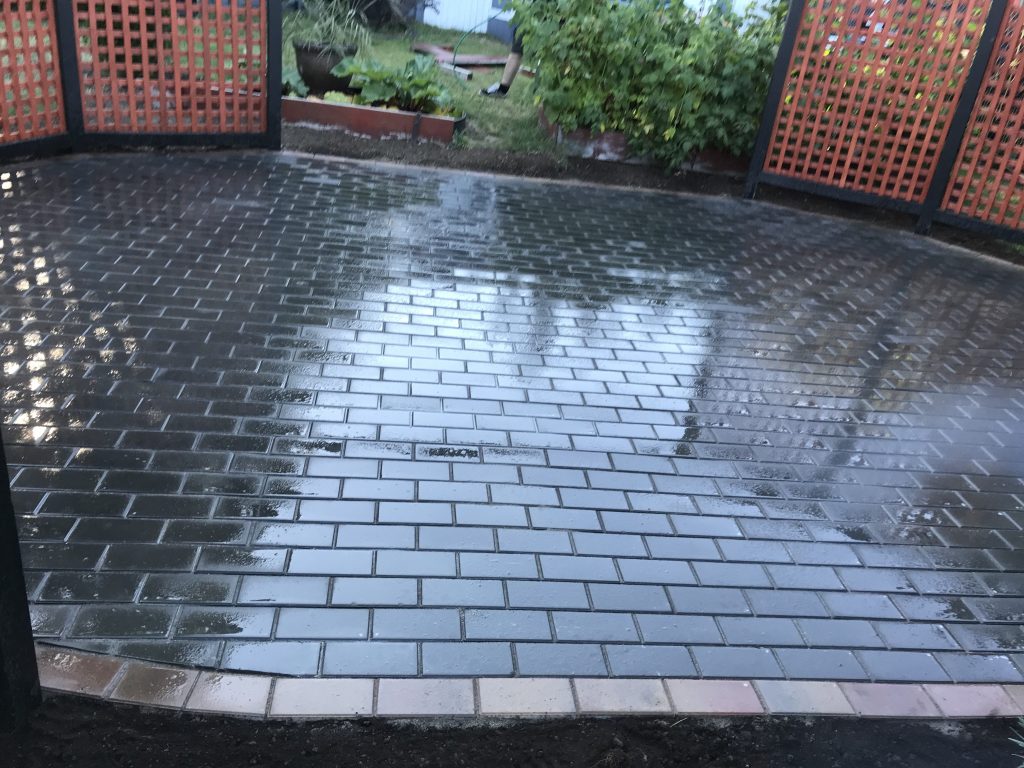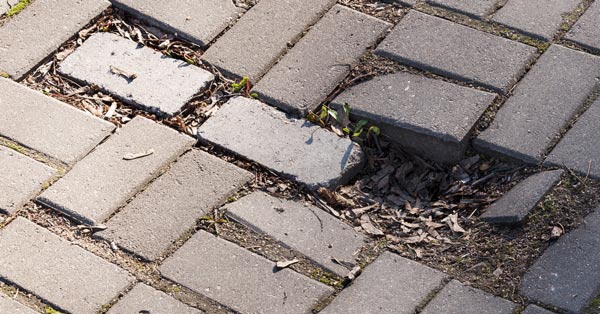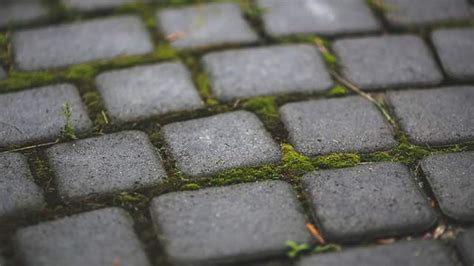
Interlocking pavers are an absolute staple in landscaping here in Victoria BC and for our company. They are most often used in walkways, driveways, and patios. They are durable, low maintenance, and look stunning. Pavers transform a grey cracked sidewalk or driveway into a sophisticated elegant look.
However, over the years, we’ve seen many pavers in various states of failure. Here are some top reasons they fail.
Sinkage, Cracks, and Weeds
The most common problems we see when we are asked to do a paver repair are pavers sinking, pavers cracking, or overabundance of weeds in the joints of the pavers.
The joints of the pavers are the areas between the individual paver bricks. They alter the look of pavers from a clean organized look into a decrepit feel.
Sinking Pavers
Sunken pavers are caused by a few possible factors.
The pavers could have been improperly installed originally. This usually means that not enough compaction was done on the base and sub-base, that is the gravel and the soil underneath respectively. It can mean that not enough base was used. For a walkway, one needs 4” of gravel while a driveway would need 8” compacted in 4” lifts (that is compacted every 4”). What happens is, there is essentially a weak foundation for the entire structure and it fails from the bottom up as pressure is applied above. Imagine a house built on quicksand. It will of course sink even if the rest of the house is structurally sound.
Since driveways are expected to hold far more weight than foot traffic, there needs to be more support underneath, i.e. more gravel, to ensure that the ground under the pavers can resist the extra force.
If the material under is not sufficiently compacted, then as soon as pressure in the form of traffic is applied on top, everything will compact and shift, but unlike with a compactor, this will be uneven.

Cracking Pavers
Cracked pavers is usually caused by a mixture of manufacturing defects and improper use. About 1 in every 50 or so paver bricks are brittle on the top face and corners. These are usually caught during installation. Also, if they are improperly used as in too much pressure concentrated on it or if they are experiencing extreme temperature changes, they will crack. The latter typically happens when people use them for or near fire pit installations. Insulation is usually needed to protect the bricks or specially designed bricks used that can withstand such temperature changes.
Sometimes when a paver starts sinking, it can concrete too much pressure on those pavers since the weight no longer becomes evenly distributed. This can also cause paver bricks to crack and fail.
Weeds

This is a very common problem. While interlocking pavers are low maintenance, like everything in life, they are not no maintenance. Every few years, it is advised to sweep new joint sand into the joints of the pavers as over time, animals, wind, and water will wash out the sand between the joints while new organic material become imbedded in the spaces. If there are no organic materials, nothing will grow. It’s that simple. Therefore, a simple maintenance regime of topping up the joints with joint sand will suffice. If however significant weeds have taken hold, you will want to pressure wash the joints out to get rid of the roots and soil in the joints, and then refill with sand. This typically becomes necessary after many years of neglect.
A Final Word
Interlocking pavers are some of the most beautiful and low maintenance parts of a landscape in Victoria. Having done numerous jobs in Victoria with pavers, we’ve seen them in all sorts of conditions. Many of the aforementioned issues are common but easily preventable. If you want to rid your space of dirt old grey concrete and replaced with beautiful pavers, if you want it done right so it will last, contact us for an estimate today!